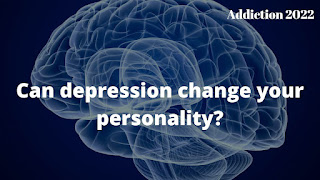How does addiction start in the brain?
When a person
develops an addiction,
the brain desires the substance's reward. This is due to the brain's rating
system being easily distracted. As a result, many users continue to consume the
chemical, which can result in a variety of euphoric experiences and strange
behaviour tendencies. Addictions primarily affected by changes in the brain's
mesolimbic dopamine system, commonly known as the reward circuit, which
originates above the brain stem in the ventral tegmental area (VTA). Dopamine
neurons have cell bodies in the VTA and axons that reach to the nucleus accumbens.
Though addiction can reveal itself in a variety of ways, including hormonal changes and behaviours, neuroimaging and scanning can also reveal symptoms of addiction in the brain. Researchers investigating at how addiction influences the brain have discovered distinct markers of addiction in the chemistry and structure of the brain. When the impulse using a substance hijacks area of the brain that reward behaviour and offer significant advantages to the body, addiction develops. The portion of the brain responsible for emotions and decision-making is also affected by substance-related diseases.
Process of
addiction in brain:
The brain receptors in an addicted person get overloaded. When stimulation becomes excessively loud, the brain responds by releasing less dopamine or destroying dopamine receptors, which is equivalent to bringing down the volume on a loudspeaker.

.png)
.png)

Comments
Post a Comment